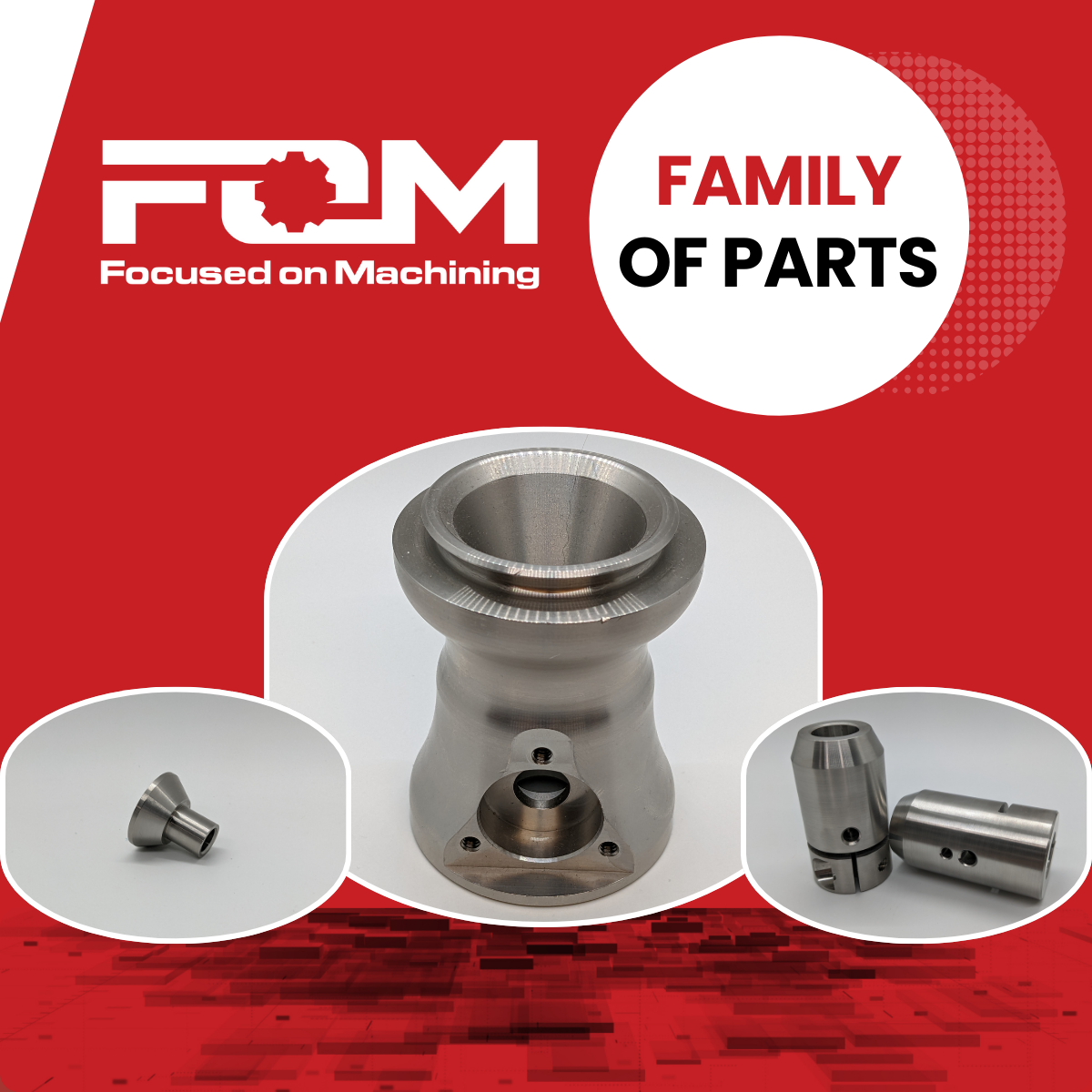We’ve talked in the past about how long-term manufacturing contracts benefit customers in the right circumstances. And among long-term contracts, certain scenarios will offer even more savings. One of the most notable is working with us on a “family of parts,” a set of similar parts that we can machine at significantly reduced pricing.
What Is a Family of Parts for a CNC Machine Shop?
A "family of parts" refers to a group of components that share common characteristics, such as material, size, features, and setup requirements. By standardizing these elements, we can optimize the machining process, reduce setup times, and minimize material waste. This approach not only increases efficiency but also enables us to pass on substantial cost savings to our customers.
When we are asked to quote a family of parts for a long-term contract, we can significantly improve on our standard pricing, because we can save on material and reduce setup time.
How to Identify a Family of Parts
For customers interested in this cost-saving strategy, it's essential to understand what qualifies as a family of parts. Here are the key factors:
Same Materials: Parts should be made from the same material, allowing for bulk purchasing and reduced costs.
Similar Size: Parts should have close dimensions to optimize material usage and machining efficiency. For example, if one part has a diameter of 0.75 inches and another is 1 inch, we can order material in a size that accommodates both.
Same Setup Fixtures: Using identical setup fixtures across parts significantly reduces setup time, speeding up the precision machining process.
Long-term Contract: Long-term commitments enable us to invest in fixtures and tooling, amortizing these costs over the contract's duration and further reducing expenses.
Quantity Requirements: The minimum quantity typically varies by project. We usually aim for at least 20 parts per quarter, with larger quantities yielding more substantial savings.
Cost Savings Through a Family of Parts
A recent project at our Colorado machine shop illustrates the benefits of this approach. A customer approached us with a three-year contract requiring the repeat delivery of approximately 60 parts per quarter. The initial request included 35 different part numbers made from various materials, including stainless steel, aluminum, carbon steel, and plastic.
By honing in on a family of parts as a subgroup, we knew we could offer drastically better pricing. We looked for parts of the same material that met the criteria laid out above and pared the order down to 21 parts. This subgroup allowed our team to find efficiencies and offer significantly reduced pricing, which the customer eagerly accepted. And because this was a long-term contract, we were able to take the time to create proper fixtures and optimize programming upfront.
However, it's essential to note that the quote was comprehensive. The improved pricing on a quote for a family of parts is an “all or nothing” proposition – we require customers to accept the entire quote rather than picking or choosing individual parts. The savings were contingent upon the entire order, enabling full implementation of cost-saving measures.
This example underscores the importance of providing detailed information when requesting a quote. The more context we have, the better we can optimize our processes and offer competitive pricing. Without detailed information, we might have quoted as if the parts were a one-time order, resulting in higher costs.
Talk to Us About Your Family of Parts
Partnering with Focused on Machining for a family of parts can lead to significant cost reductions. The potential savings often correlate with the complexity of the parts involved; the more complex the part, the greater the opportunity for cost savings.
If your next precision machining project includes a family of parts, we encourage you to reach out. Request a quote or contact us today to discuss how we can help you achieve better pricing and more efficient production. Our expertise and commitment to quality will ensure your project's success from prototype to production.

